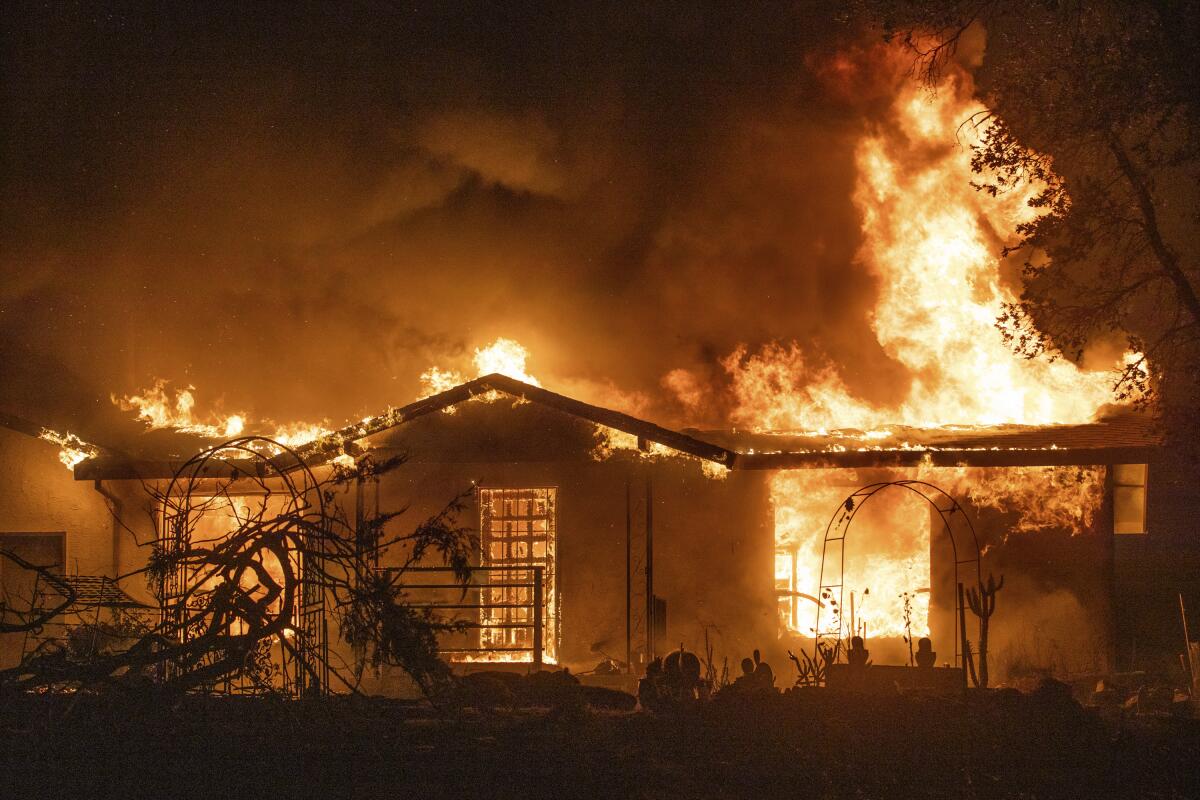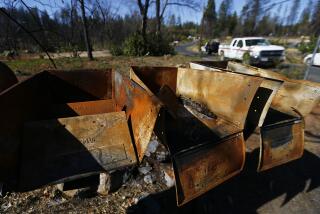State Farm seeks major rate hikes for California homeowners and renters

State Farm General is seeking to dramatically increase residential insurance rates for millions of Californians, a move that would deepen the state’s ongoing crisis over housing coverage.
In two filings with the state’s Department of Insurance on Thursday signaling financial trouble for the insurance giant, State Farm disclosed it is seeking a 30% rate increase for homeowners, a 36% increase for condo owners and a 52% increase for renters.
“State Farm General’s latest rate filings raise serious questions about its financial condition,” Ricardo Lara, California’s insurance commissioner, said in a statement. “This has the potential to affect millions of California consumers and the integrity of our residential property insurance market.”
Major insurers have pulled back from California’s homeowners market, citing wildfires, inflation and other challenges. But there are steps at-risk homeowners can take now to secure coverage and at lower prices.
Lara noted that nothing immediately changes for policyholders as a result of the filings. He said his department would use all of its “investigatory tools to get to the bottom of State Farm’s financial situation,” including a rate hearing if necessary, before making a decision on whether to approve the requests.
That process could take months: The department is averaging 180 days for its reviews, and complex cases can take even longer, according to a department spokesperson.
The department has already approved recent State Farm requests for significant home insurance rate increases, including a 6.9% bump in January 2023 and a 20% hike that went into effect in March.
The company’s bid to sharply increase home insurance rates seeks to utilize a little-known and rarely used exception to the state’s usual insurance rate-making formula. Typically, such a move signals that an insurance provider is facing serious financial issues.
In one of the filings, State Farm General said the purpose of its request was to restore its financial condition. “If the variance is denied,” the insurer wrote, “further deterioration of surplus is anticipated.”
The insurance provider provided additional details Friday, saying it was “working toward its long-term sustainability in California.”
“Rate changes are driven by increased costs and risk and are necessary for State Farm General to deliver on the promises the company makes every day to its customers,” the company said in a statement. “We continue to look for ways to maintain competitive rates.”
California is facing an insurance crisis as climate change and extreme weather contribute to catastrophic fires that have destroyed thousands of homes in recent years.
In March, State Farm announced that it wouldn’t renew 72,000 property owner policies statewide, joining Farmers, Allstate and other companies in either not writing or limiting new policies, or tightening underwriting standards.
The companies blamed wildfires, inflation that raised reconstruction costs, higher prices for reinsurance they buy to boost their balance sheets and protect themselves from catastrophes, as well as outdated state regulations — claims disputed by some consumer advocates.
The lack of options has prompted thousands of Californians to purchase insurance from the FAIR Plan as a last resort. Funded by the insurers doing business in the state, the Fair Access to Insurance Requirement plan provides more limited coverage as a fallback for property owners unable to find conventional policies they can afford.
As insurers have receded from the homeowners market, lawmakers in Sacramento are scrambling to make coverage available and affordable for residents living in high-risk areas.
Last fall, Lara announced his Sustainable Insurance Strategy, a package of executive actions designed to reform the industry.
The new regulations are expected to be in place by the end of the year and mark the biggest overhaul of industry regulations since the 1988 passage of Proposition 103, which gave an elected insurance commissioner the authority to review and reject requests for rate hikes by insurers that offer homeowners, auto and other lines of coverage.
This month the Department of Insurance issued a list of wildfire-prone ZIP Codes affected by the proposed regulations. The ZIP Codes include neighborhoods in Malibu, Beverly Hills, Topanga, Bel-Air, Beverly Glen, Duarte, Castaic and on Catalina Island.
Denni Ritter, department vice president of the American Property Casualty Insurance Assn., a trade group for insurers, said Friday that the state’s “outdated insurance regulatory framework is failing consumers.”
“Current market disruptions demonstrate the urgent need for comprehensive reforms,” she said in a statement. “Insurers remain committed to working closely with Commissioner Lara to implement his Sustainable Insurance Strategy to help restore health and access to California’s insurance market.”
Times staff writer Laurence Darmiento contributed to this report.
More to Read
Inside the business of entertainment
The Wide Shot brings you news, analysis and insights on everything from streaming wars to production — and what it all means for the future.
You may occasionally receive promotional content from the Los Angeles Times.












